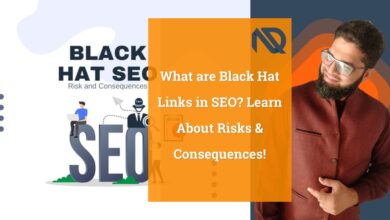What are Crawl Errors, Rendering & Indexing?
Crawl Errors, Rendering, and Indexing are integral components of website performance and search engine optimization (SEO), influencing how effectively a webpage is discovered, displayed, and ranked by search engines. Each of these processes plays a distinct yet interconnected role in ensuring a website’s visibility and usability.
Crawl errors occur when search engine bots, such as Googlebot, encounter issues while accessing or navigating a website. These errors include server errors (5xx) caused by server misconfigurations, client errors (4xx) like 404 not found, and DNS errors where bots cannot locate the server or domain. Problems with redirects, such as redirect loops or the misuse of 302 instead of 301 redirects, can disrupt crawling. Other issues include improperly configured robots.txt files, timeouts where pages take too long to load, and blocked resources like CSS or JavaScript files. Crawl budget mismanagement arises when resources are wasted on low-priority pages, and IP restrictions or unreachable URLs further impede crawling.
Rendering refers to the process by which search engines interpret and display webpage content. This includes HTML parsing, loading CSS and JavaScript, and addressing render-blocking resources that delay page visibility. Dynamic rendering is critical for websites using frameworks like React or Angular, ensuring search engines process JavaScript-generated content. Proper mobile rendering supports mobile-first indexing, while lazy loading issues can prevent essential content from being rendered. Optimized rendering considers viewport responsiveness, content visibility, and respects canonical tags to avoid duplication. Structured data rendering ensures schema markup is correctly processed, enhancing search visibility.
Indexing involves storing and organizing webpage information in a search engine’s database for retrieval during user queries. Page discovery ensures all important pages are linked and accessible. Monitoring indexing status confirms whether pages are successfully indexed, while managing duplicate content prevents multiple versions from being indexed. Noindex tags help exclude non-essential pages, while meta robots tags like index, noindex, follow, and nofollow direct search engine behavior. Submission of XML sitemaps aids in locating pages, and language tagging ensures hreflang tags indicate regional or language variations. Proper handling of pagination and crawl depth ensures comprehensive indexing. Special attention to dynamic URLs and parameterized content prevents indexing inefficiencies.
SEO performance is directly tied to these processes. Metrics such as Core Web Vitals—including Largest Contentful Paint (LCP), Cumulative Layout Shift (CLS), and Time to Interactive (TTI)—impact how well pages render and are indexed. Crawl frequency determines how often bots revisit pages, while URL canonicalization consolidates ranking signals. Tools like the Index Coverage Report and Google Search Console provide insights into crawl, render, and index issues. Keyword relevance ensures indexed pages align with search queries, boosting visibility.
Accessibility is a vital consideration in optimizing crawl, render, and index processes. Mobile-first indexing prioritizes mobile-friendly pages, while HTTPS preference ensures secure pages are indexed. Accessible content, including proper alt text for images, enhances usability for all users, including those with disabilities. Clear navigation and intuitive site structure further support search engine bots in crawling and indexing efficiently.
Various tools and techniques assist in optimizing these processes. Google Search Console monitors errors, rendering, and indexing status, while Screaming Frog identifies crawl and render issues. Tools like WebPageTest and Lighthouse evaluate rendering and performance. Testing robots.txt files, validating structured data, and analyzing log files ensure smooth bot interaction.
However, challenges like infinite scroll, orphan pages (those without links), and session IDs or parameters can complicate crawling and indexing. Third-party resources, such as ads and widgets, may slow rendering, and JavaScript-heavy content can be difficult for search engines to process. Low-quality or thin content reduces indexing priority, while excessive crawl volumes waste resources.
The benefits of addressing crawl errors, rendering, and indexing are significant. Properly managed processes enhance SEO performance, improve user experience, increase crawl efficiency, and boost visibility in search results. Accurate indexing provides reliable analytics, enabling better data-driven decisions.
To optimize these processes, implement server response time improvements, submit updated XML sitemaps, and strategically configure robots.txt files. Address crawl errors like 4xx and 5xx codes promptly, validate structured data, and ensure proper canonicalization of URLs. Minify resources like CSS and JavaScript for faster rendering and monitor crawler activity with log analysis. Regular audits using tools like Google Search Console and compliance with mobile usability standards ensure continuous improvement.
A Comprehensive Look!
Want SEO Consultancy for your project?
If you feel that you are lost in somewhere middle, I am here to help you with this.



